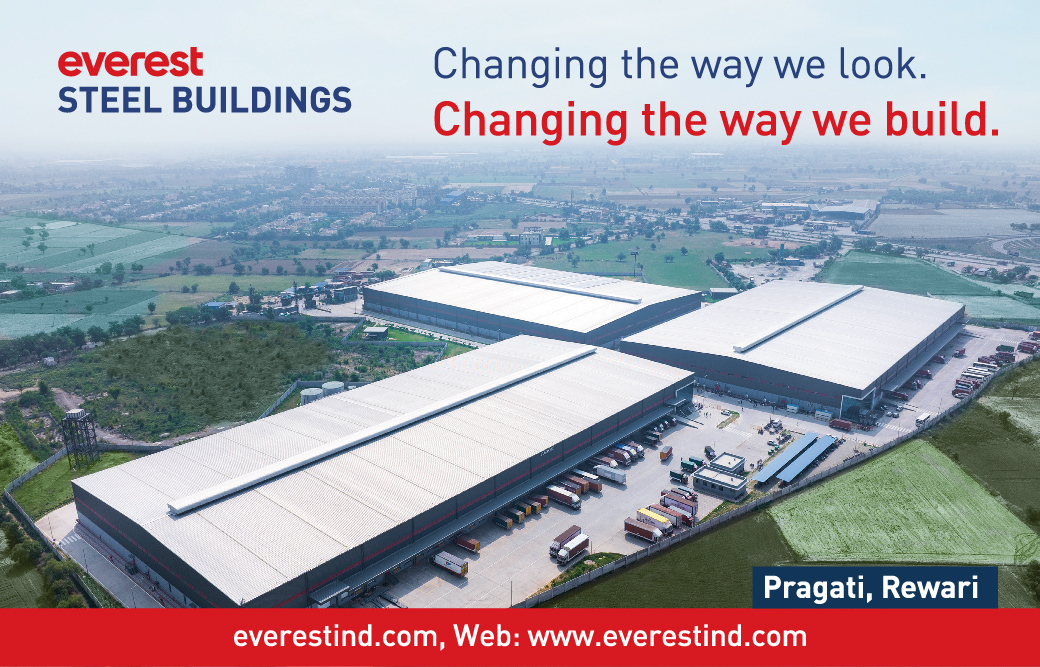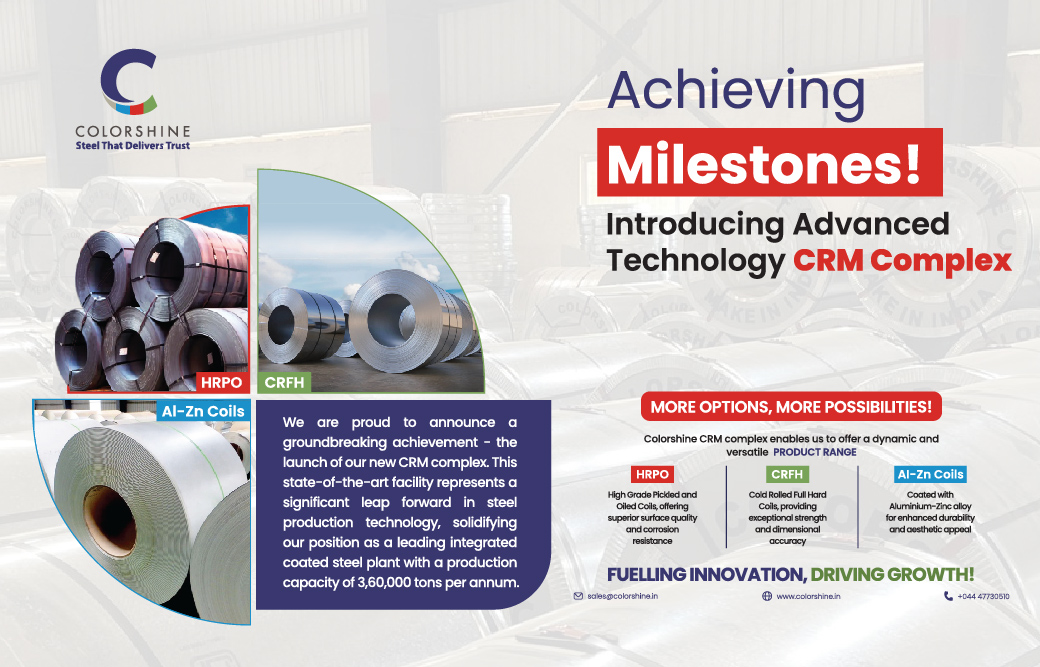Experts from the CE industry reveal how to achieve fuel efficiency
Fuel efficiency often tops the list of demands preferred by the customers for their machines. “At CASE India, our priority is to provide customers with the cost-efficiency and performance that they expect from CASE equipment. The company emphasises on continuous product development to improve the equipment’s performance with an eye to the environment. This has led to increasing fuel-efficiency in the equipment with cleaner emissions,” emphasises Shalabh Chaturvedi, Head – Marketing, CASE India.
For construction equipment the biggest contributor to fuel efficiency is, of course, the machine itself. Volvo CE delivers one of the industry-leading levels of fuel efficiency. It is well-known for producing some of the best performing machines in this regard. From inventing one of the world’s first truly low-emission diesel engine in construction equipment to developing innovations such as OptiShift technology – a system that delivers upto 15 per cent improved fuel efficiency and increased performance in wheel loaders.
“Each year we invest a substantial amount of money in advanced engineering to drive the development of new innovations and improve conventional technology by reducing the waste of energy. At present we are working on multiple solutions that will contribute to even greater fuel efficiency for customers and that will deliver tangible benefits to Indian contractors as they look to bring more efficiency to their operations,” says Dimitrov Krishnan, Vice President and Head, Volvo CE India.
Volvo CE’s new generation of V-ACT engines offer greater levels of fuel efficiency through the inclusion of ultra-high pressure variable fuel injection systems, cooled exhaust gas recirculation (EGR), precise control of the turbochargers, powerful new EMS engine management systems and an integrated exhaust after-treatment system that features a particulate filter and thermal regenerator. While these engines are not yet required by Indian legislation, the cost and efficiency savings their design and technology bring are clear.
In more general terms, when talking about fuel efficiency, we also have to acknowledge the importance of the operator. While the engineering and design of a machine will establish what fuel efficiency a machine is capable of, how the operator controls it will ultimately determine how much of the potential fuel saving is actually achieved.
Krishnan shares some measures that can help equipment operators save fuel, such as:
• Planning: Understand where the machine will be working for a particular shift or project and ensure it handles the jobs in the most efficient way, with the smallest amount of travel between work sites.
• Maintenance: Maintain tyre pressure and the machine overall. Be sure the machine is in a suitable condition to run at its optimal level of fuel efficiency. That means making sure the tyres are at the correct pressure and all other systems are functioning normally.
• Speed: Regulating driving speeds is one obvious way to improve fuel efficiency. Again, trained and experienced operators will understand this and can help deliver real benefits.
• Eliminate waste: It should go without saying but machines should not be started before they are needed nor left running after the day’s work is done. Most modern equipment does not need the warm up or cool down that machine of yesteryear required.
Striving for better fuel efficiency from construction equipment offers a range of benefits, not least the capacity to generate stronger profits for the business. It also reduces environmental impact and improves machine longevity.
Pune based Universal Construction Machinery and Equipment Ltd has developed next generation Green mixers, a small effort towards a greener and healthier world. This machine is fuel efficient and conserving resources. Universal makes 10/7 GexXmixer which are technology and fuel efficient.
Universal’s in-house R&D has developed design in which homogenous aggregate mixing is possible with 3.5 Hp engine, earlier it was 6 Hp engines. Due to this there is less fuel consumption thus 30 per cent of fuel saving, this results into less air pollution and environment friendly machines with less noise and compact in size which makes easy to handle.
Given below are a few key points to be considered in achieving fuel efficiency for quality construction equipment:
1. Advanced engine and hydraulics
To increase the machine’s durability, one should focus on the use of quality engines along with regular maintenance across construction equipment which will help deliver excellent fuel efficiency.
Ramesh Palagiri, MD and CEO, Writgen India informs, “Hamm soil and asphalt compactors are equipped with highly durable, fuel efficient cummins engine and world class hydraulics from Bosch. With the trouble free performance of the hydraulic system and desirable performance of the engines will improve the overall performance of the machine.”
In Hamm machines, most of the main structures are made with high tensile steel. Engine and hydraulic system are specially designed to meet higher ambient requirements. Using of these components will improve the reliability of the machines.
2. Design of air filters or fuel filters
The quality engine should be equipped with turbo charger waste gate control mechanisms with Internal Exhaust Gas Recirculation system (IEGR) to minimise the Emissions (like Nitrogen Oxides and Hydro Carbons) and protect the environment.
“Improved design of air and fuel filters is having higher life. Using these filters will increase the change or service intervals, reducing the operation and maintenance cost of the machines,” says Palagiri.
3. Operators comfort
For better control of visibility and safety aspects the machines can be equipped with a forward-mounted articulation joint giving operators a clear sense of direction and excellent mold board visibility from the operator’s cabin.
“CASE India Construction Equipment’s engineers are constantly developing clever innovations to make equipment more fuel efficient while reducing emissions and environmental impact. Keeping in mind that the operator is one of the biggest influencers on production, up-time, fuel burn, and machine life, the company has successfully lowered the sound levels in all the construction equipment. This enhances operator comfort, which in turn increases productivity and keeps the pollution under control,” says Chaturvedi.
Hamm compactors are provided with isolated operator platform. Vibration of the machine is not felt. This will improve the stress free operation of the machine and improves the operators efficiency.
4. Structural stability and ease of maintenance
One should focus on providing easy engine compartment access along with daily service checkpoints for quick and efficient maintenance in construction equipment.
5. Tracking and monitoring tech
Equipment should be installed with a unique trip meter on the operator dashboard that continuously monitors the fuel consumption, hours operated and operating temperatures. Electronic indicators can also be connected to the dashboard for safety related or operation related parameters. Based on customer requirement CASE India has recently launched Eagle Eye Telematic System, a real time vehicle tracking and communication based on GPS technology. This delivers better value for money.
6. Higher steer ability and higher curb clearance
Hamm asphalt compactors steer gently and smoothly in order to prevent the asphalt from buckling and shifting. These compactors have drum edge visibility with sliding seat console with operator friendly features making the machine easy to operate. Inbuilt frame design to achieve higher curb clearance enables machine to go close to curb or median during compaction. This will avoid additional usage of plate compactor or walk behind compactors generally used to compact the layer close to curb.
7. Water system performance
There are two types of water pumps – highly durable water pumps and high pressure water pumps. Highly durable water pumps are used for the operation and high pressure water pumps as stand-by. For maintenance free operation, three stages of filtration is provided – filling, inline and nozzle.
8. Gradeability
Hamm Soil compactor has better climbing ability to operate in higher gradient locations. The weight distribution between front and rear of the machine is such that the gradeability is achieved both in forward and reverse movement of the machine.
Since operator is one of the biggest influencers on production, up-time, fuel burn, machine life, we have lowered the sound levels.
Shalabh Chaturvedi, Head of Marketing, CASE India
Improved design of air, fuel filters has higher life and using these will increase the change or service intervals, reducing the operation, maintenance cost.
Ramesh Palagiri, MD and CEO, Writgen India
At present we are working on multiple solutions that will contribute to fuel efficiency that will deliver tangible benefits.
Dimitrov Krishnan, Vice President and Head, Volvo CE India.
Cookie Consent
We use cookies to personalize your experience. By continuing to visit this website you agree to our Terms & Conditions, Privacy Policy and Cookie Policy.


















